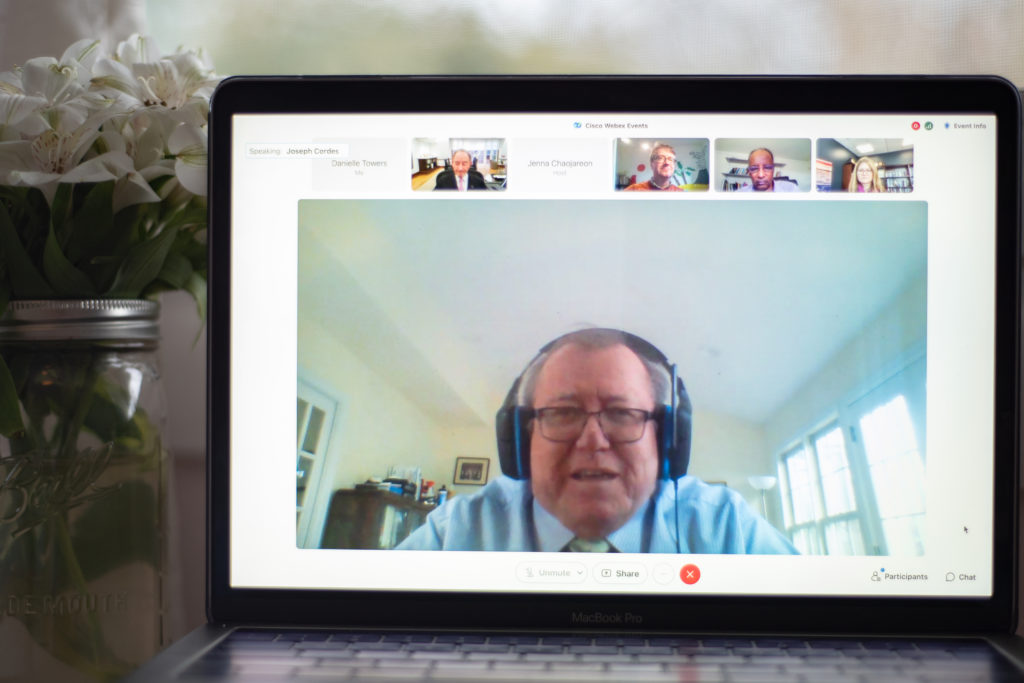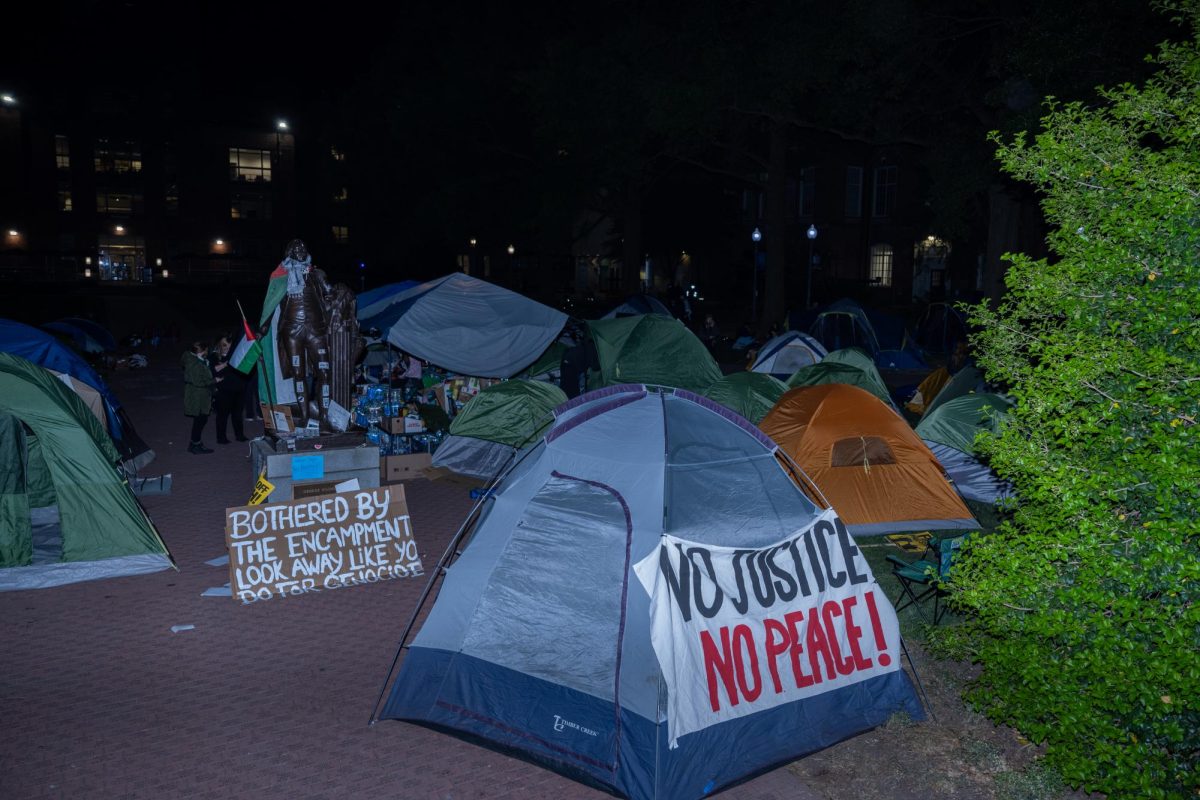Officials restored funding for faculty merit salary increases in the Fiscal Year 2022 budget with additional spending on faculty promotions, nearly two years after they suspended certain salary benefits to mitigate the COVID-19 pandemic’s financial impact.
Joe Cordes, the co-chair of the Faculty Senate’s fiscal planning and budgeting committee, said at a senate meeting Friday that officials restored 3 percent merit raises and increased funding for promotions and other pay adjustments by half a percent this fiscal year. The change comes as officials have been winding back COVID-19 budget mitigation efforts they implemented to limit the pandemic’s financial impact, like the suspension of base and matching retirement contributions.
“As a former department chair, I can tell you that this is helpful because in the past we had to take funds for promotions and other adjustments out of the 3 percent,” Cordes said at the meeting. “So by adding the half a percent, you raise the cap just a little bit.”
Cordes said the University may face an increase in expenses next fiscal year that isn’t accompanied by an equivalent revenue increase.
The revenue and expense mismatch is an issue that affects nonprofits and has affected GW in the past. Officials cut the budget in 2015 after the University failed to meet its projected revenues to offset expenses following a decrease in enrollment.
“In the past one way of dealing with it was the then-[chief financial officer], Lou Katz, would periodically call a financial crunch, and the schools and units would have to cut the budgets to restore balance between revenue and expense growth,” he said.
Cordes said the Class of 2022’s graduation could lead to revenue challenges because the class has roughly 200 more students than most others at GW.
“We’re going to need to increase other admissions to make up for this, but I consider that to be a challenge,” he said.
GW’s undergraduate enrollment fell by almost 2 percent this year, marking a slowdown of a multi-year decline. Officials said the change was “on track” with their targets for the year.
Cordes also said officials are looking to increase investments in equity markets to optimize the endowment’s return with lower interest rates during the pandemic.
“Obviously, this is something we need to do, but it’s a challenge, right?” he said. “It’s not going to be something that you could just do standing on your head.”
Interim University President Mark Wrighton also delivered his first-ever president’s report at the meeting Friday, where he discussed the Board of Trustees’ goals for his time in office to prepare for his permanent successor. He said he will work to improve shared governance, fundraising and faculty retention at GW.
“It will be my hope that we can see evident progress over the time that I’m with GW,” he said. “I know that we have many talented leaders of the University who are already working on these areas. And I’m looking forward to working with everyone building a consensus on what we want to be and what steps we need to take to do that.”
Interim Provost Chris Bracey said at the meeting that officials have started developing the “review team” for the diversity program review that his office is spearheading. Officials announced last semester that they would hold an internal review of the University’s diversity, equity and inclusion in a reversal of the University’s plans to conduct an external audit of campus diversity last academic year.
“We expect that these teams will work over the coming year to produce reports containing quantitative and qualitative data in a number of areas,” Bracey said in his remarks.
Faculty also voiced concerns at the meeting about the return to in-person teaching this week, saying they were unsure if the University’s contact tracing and testing infrastructure was well suited to handle the Omicron variant.
Lynn Goldman, the dean of the Milken Institute School of Public Health, said the Medical Advisory Group and public health faculty have monitored the status of Omicron and decided in-person classes would be safe, based on the University’s COVID-19 handling protocol.
The University required community members to receive the COVID-19 booster by Jan. 10 and will implement an “isolation-in-place” strategy if students who test positive for COVID-19 exceed isolation housing capacity. GW community members can also pick up free N95 masks from various locations around campus, officials announced last week.
“This has been a very fast-moving situation,” Goldman said. “And when I think that’s been very anxiety-provoking for people in our community, and I think one of our biggest issues is going to be really reinforcing the efficacy of the people on our campus, our capacity, our capability to be able to live with this thing.”










